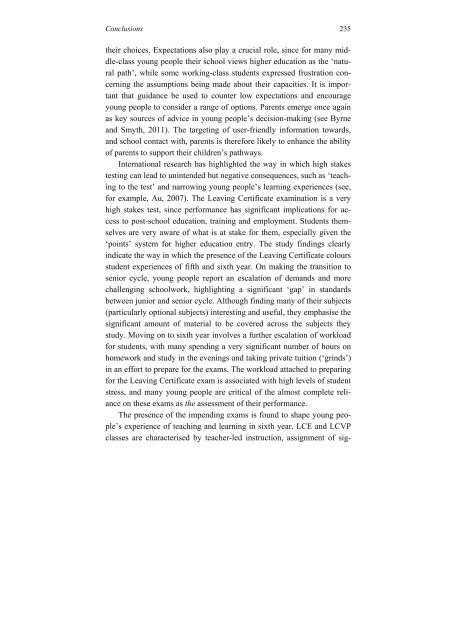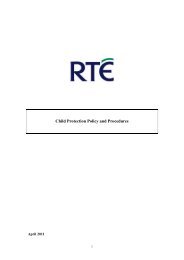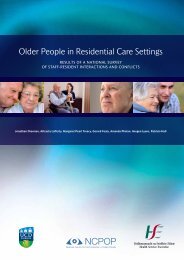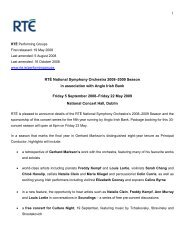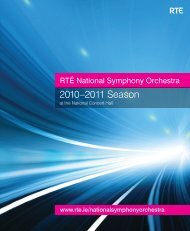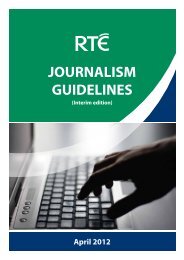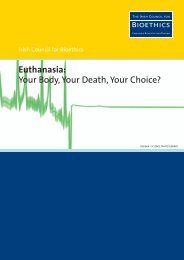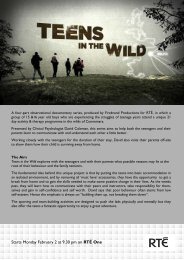From Leaving CertiFiCate to Leaving SChooL a Longitudinal Study ...
From Leaving CertiFiCate to Leaving SChooL a Longitudinal Study ...
From Leaving CertiFiCate to Leaving SChooL a Longitudinal Study ...
You also want an ePaper? Increase the reach of your titles
YUMPU automatically turns print PDFs into web optimized ePapers that Google loves.
Conclusions 235<br />
their choices. Expectations also play a crucial role, since for many middle-class<br />
young people their school views higher education as the ‘natural<br />
path’, while some working-class students expressed frustration concerning<br />
the assumptions being made about their capacities. It is important<br />
that guidance be used <strong>to</strong> counter low expectations and encourage<br />
young people <strong>to</strong> consider a range of options. Parents emerge once again<br />
as key sources of advice in young people’s decision-making (see Byrne<br />
and Smyth, 2011). The targeting of user-friendly information <strong>to</strong>wards,<br />
and school contact with, parents is therefore likely <strong>to</strong> enhance the ability<br />
of parents <strong>to</strong> support their children’s pathways.<br />
International research has highlighted the way in which high stakes<br />
testing can lead <strong>to</strong> unintended but negative consequences, such as ‘teaching<br />
<strong>to</strong> the test’ and narrowing young people’s learning experiences (see,<br />
for example, Au, 2007). The <strong>Leaving</strong> Certificate examination is a very<br />
high stakes test, since performance has significant implications for access<br />
<strong>to</strong> post-school education, training and employment. Students themselves<br />
are very aware of what is at stake for them, especially given the<br />
‘points’ system for higher education entry. The study findings clearly<br />
indicate the way in which the presence of the <strong>Leaving</strong> Certificate colours<br />
student experiences of fifth and sixth year. On making the transition <strong>to</strong><br />
senior cycle, young people report an escalation of demands and more<br />
challenging schoolwork, highlighting a significant ‘gap’ in standards<br />
between junior and senior cycle. Although finding many of their subjects<br />
(particularly optional subjects) interesting and useful, they emphasise the<br />
significant amount of material <strong>to</strong> be covered across the subjects they<br />
study. Moving on <strong>to</strong> sixth year involves a further escalation of workload<br />
for students, with many spending a very significant number of hours on<br />
homework and study in the evenings and taking private tuition (‘grinds’)<br />
in an effort <strong>to</strong> prepare for the exams. The workload attached <strong>to</strong> preparing<br />
for the <strong>Leaving</strong> Certificate exam is associated with high levels of student<br />
stress, and many young people are critical of the almost complete reliance<br />
on these exams as the assessment of their performance.<br />
The presence of the impending exams is found <strong>to</strong> shape young people’s<br />
experience of teaching and learning in sixth year. LCE and LCVP<br />
classes are characterised by teacher-led instruction, assignment of sig-


